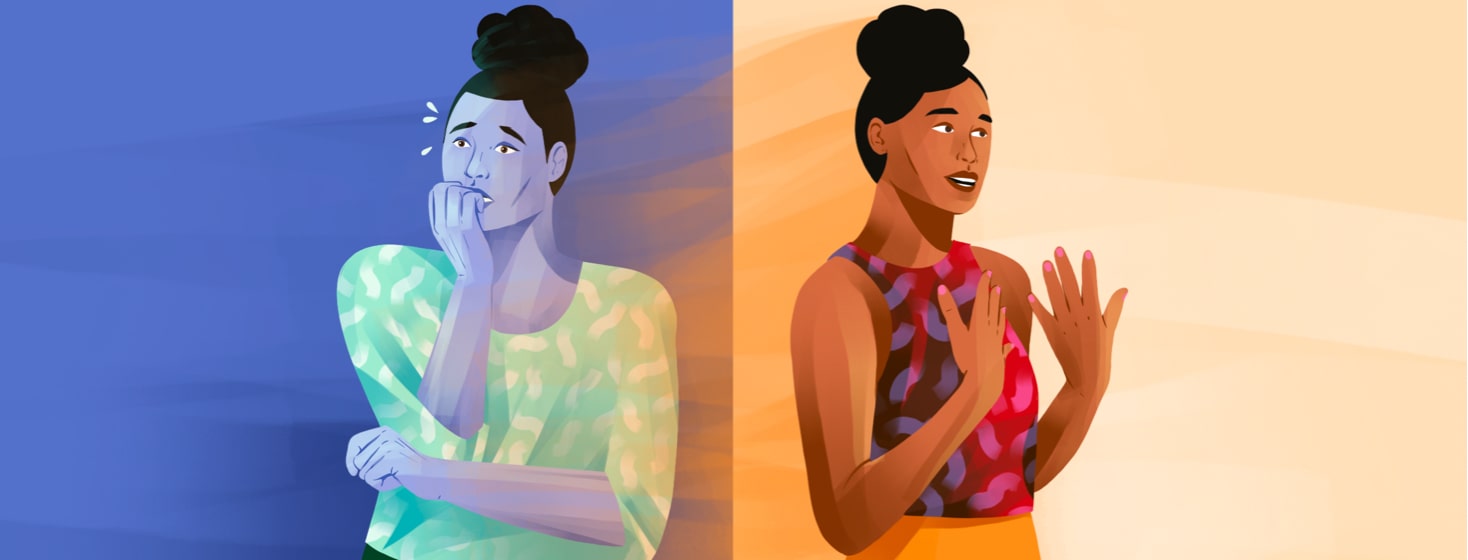Learning to Talk About IBS: Breaking the Stigma
When I first started talking about IBS, I was very ashamed and embarrassed. It was hard for me to talk about the subject as I was very squeamish about any kind of potty talk. I have found that the more I talk about it, the easier it is to talk about IBS. I am slowly but surely shedding the stigma that has dogged me throughout my life.
Not being able to talk about IBS caused several different problems, and each one was a big problem. I needed to learn to speak up in order to improve my quality of life. Being able to tell people what I need is much better than backing down to avoid talking about IBS. This is how talking about IBS has helped me.
Not being able to explain why I couldn’t eat
When I attended dinner parties, various functions, or simply went out to dinner with friends, it was uncomfortable trying to explain why I could not eat or why I could only eat certain things. Some people took offense when I would not eat the food they prepared. I am sure plenty of people thought I was odd.
I live in an area where food is how many people express love for one another. Declining a dish is often seen as offensive. I often hurt someone’s feelings when I told them I could not eat. It would have been so much easier (and less hurtful) if I had simply explained the issue. I am able to do that more freely now. Hopefully, this will keep me from hurting people’s feelings.
Not being able to explain why I was in pain
If you have IBS, you know how being in pain can make you want to avoid socializing. You also know how pain makes a person grumpy and less-than-fun to be around. When I get like this, I prefer to avoid people rather than explain why I am in pain. People either do not understand when I say I do not feel good or they want further explanation.
Since I did not wish to dive into a discussion of IBS, I found myself making excuses. Of course, this also led to hurt feelings. The times where I forced myself to go and knew I was grouchy also caused problems. Saying I was in pain was not enough. People wanted an explanation, and I did not want to explain IBS. It is much easier now, and I have found that most people understand.
Being pushed into eating trigger foods and suffering
There were plenty of times when I did not want to eat something because I knew the consequences. In order to spare someone’s feelings, I would often give in and eat. I suffered when I did not have to. My inability to speak up caused me a lot of grief. I worried more about hurting someone’s feelings than I did my own well-being. I could not say, "I cannot eat that."
Some people did not know they were causing me pain. That was my fault. Perhaps if I had simply explained why I did not wish to eat I could have spared myself a lot of flares over the years. Unfortunately, I was unable to do that. Now that I can, I anticipate the number of flares I experience to decrease.
Something as simple as being able to talk about IBS helps increase your quality of life in a number of ways. If you are having trouble talking about it, know that you are not alone. It has taken me over 2 decades to learn how to talk to others about IBS. If you need tips for avoiding the conversation, I have plenty. How do you handle these conversations? I would love to hear your ideas for helping others who have trouble telling others about IBS.

Join the conversation